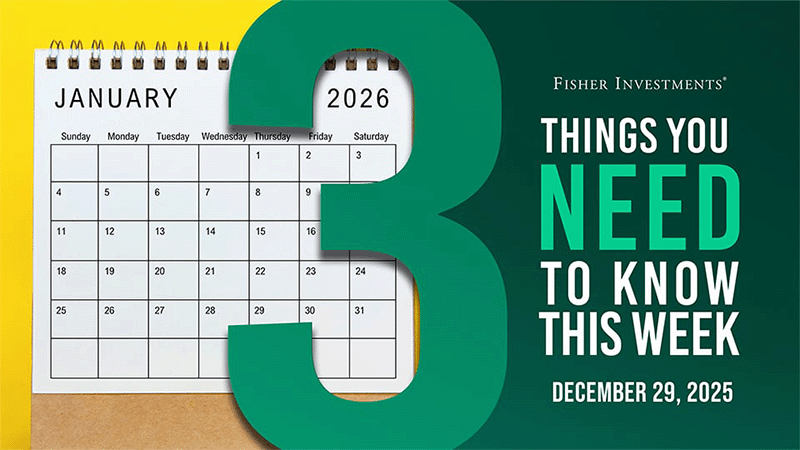Personal Wealth Management / Market Analysis
The Good, the Bad, and the Not So Bad
Ben Bernanke's congressional testimony on Wednesday seemingly supports calls for recession in 2008. Scaling the problems reveals slower growth, but a recession remains unlikely.
Story Highlights:
- Recession fears continue to dominate headlines.
- Ben Bernanke's congressional testimony on Wednesday did little to instill an already uneasy public with much confidence.
- Scaling housing troubles and breaking GDP into its constituent parts reveal slower growth but little to justify calls for recession.
___________________________________________________________________________________
Aggregate economic statistics are comprised of the good, the bad, and the (eh) not so bad. But in times of worry, many fixate on the bad, exaggerate its effects on the whole, and forget about the good and the "eh" entirely. This is one reason economic prognostications are typically off the mark. But rather than fall prey to misperception, we can break it all down and do some good old-fashioned sums.
For at least a year, many have forecasted impending recession. Recession mania reached a fever pitch last month with numerous comparisons between today and the Great Depression. In his testimony to Congress Wednesday, Fed chairman Ben Bernanke indicated the current economic forecast is murky at best, and the economy would likely slow, not grow at all, or contract. (How's that for hedging your bets?) Mr. Bernanke's speech did little to instill an already uneasy public with much confidence.
Bernanke Says US Could Be Facing a Mild Recession
By Staff, CNBC.com
https://www.cnbc.com/id/23917666
The Economic Outlook
By Ben Bernanke, Testimony Before the Joint Economic Committee, US Congress
https://www.federalreserve.gov/newsevents/testimony/bernanke20080402a.htm
While Bernanke's actual testimony (as opposed to the media reaction) is always worth reading, we should also keep in mind his public discourse is necessarily vague—particularly in sworn testimony to Congress. The truth is the economy could always slow, not grow at all, or even contract. But which is most likely?
For those preoccupied by option three, housing is the economy's banana peel today. But housing makes up only 4% of the total GDP pie. A huge, unprecedented decline of 25% would only chip away 1% of GDP—and it still wouldn't single-handedly induce a recession. Housing's rapid growth between 2000 and 2002 wasn't enough to save the economy then; likewise, its recent troubles aren't enough to sink the economy now.
This article does the math and finds some parts of the economy are truly in bad shape, some not so bad, and others actually in pretty good shape.
The Math Behind the Good and Bad in GDP
By Dick Green, Briefing.com
https://www.briefing.com/GeneralContent/Investor/Active/ArticlePopup/ArticlePopup.aspx?SiteName=Investor&ArticleId=NS20080401092111TheBigPicture
The article says housing continues to be weak—and even commercial real estate may slip for the first time—but combined, these segments make up just 7% of total GDP. It would be irrational to ignore the other 93%, which should post marginally positive to strong gains overall. Consumer spending is leveling, not contracting. Business investments should add to growth. Government spending is unlikely to fall any time soon. And exports, at three times the size of residential construction, should continue to boom. Note: Folks fret housing's decline will negatively impact future consumer spending. But changes in residential real estate values have had a miniscule impact on spending historically. Spending is much more closely linked to personal income, which has continued to grow.
A word to the wise: Attempts to predict economic tides are fraught with danger. Even after all the numbers are in, it takes three months and three revisions to get them right; and even then, they're greatly based on assumptions and guesstimates. Scenario three (contraction) isn't completely out of the question. But checking the numbers, scaling perceived problems, and impassively adding it all up yield a more positive outlook than many would have you believe.
If you would like to contact the editors responsible for this article, please message MarketMinder directly.
*The content contained in this article represents only the opinions and viewpoints of the Fisher Investments editorial staff.
Get a weekly roundup of our market insights
Sign up for our weekly e-mail newsletter.

You Imagine Your Future. We Help You Get There.
Are you ready to start your journey to a better financial future?

Where Might the Market Go Next?
Confidently tackle the market’s ups and downs with independent research and analysis that tells you where we think stocks are headed—and why.





